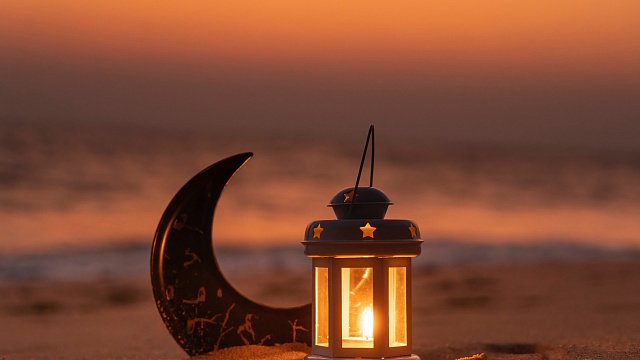15.03.24
16:16
Holy Month of Ramadan: History and Traditions
In this article you will learn how Muslims in the BRICS countries spend the holy month
The month of Ramadan is a period in the Muslim calendar that is considered one of the most sacred and spiritually intense times of the year. During this month, millions of Muslims around the world fast from dawn to dusk, abstaining from food, drink and other worldly pleasures during daylight hours. However, the Month of Ramadan is not only a time of physical asceticism, but also a time of inner spiritual growth and reflection. In an exclusive commentary to TV BRICS, Olimzoda Sorboni, Assistant of Comparative Political Science at the RUDN named after Patrice Lumumba, explained the intricacies of the holy month of Ramadan.
Why does Ramadan have several names?
In fact, the very concept of Ramadan is known to all Muslims of the world, but it still has several names, which can vary depending on the cultural and linguistic peculiarities of different Muslim communities. The reasons for the diversity of its names include: language differences, religious interpretations, changes in translation and transliteration. For example, in some BRICS countries, in Tatarstan and Bashkortostan it is called Ramazan, in Central Asia and recently joined BRICS Iran they say Ramazon, but in the North Caucasus and other BRICS countries Ramadan is called Ramadan, the difference can be seen in just one or two letters. Moreover, in some countries Ramadan Kareem is called the month of Forgiveness, Mercy and Generosity, which indicates a religious interpretation of the concept, because in this month, according to the Holy Scriptures and prophetic sayings, believers purify themselves from sins by pleading for forgiveness and doing good deeds, and show special generosity.
However, despite the variety of names, the essence of the month of Ramadan and its meaning for Muslims remains unchanged – it is a time of fasting, prayer, reflection and spiritual purification.
How the month of Ramadan is observed in the BRICS countries?
BRICS countries spend this month in much the same way, with a slight difference. The difference in each of these countries depends on the presence and size of the Muslim population, as well as historical traditions.
A country with a large Muslim population celebrates Ramadan with great fanfare, such as mass prayers, iftar (the process of eating the evening meal) and suhoor (eating the morning meal before abstaining again), as well as charity events.
Charity is also a key aspect of Ramadan. Believers consider it their duty to help those in need, especially during this holy month. Many dream of being charitable and generous in order to receive Allah’s mercy and forgiveness.
What is the spiritual significance of Al-Qadr, a night equal to 1 thousand months, during Ramadan?
The spiritual significance of the Night of Al-Qadr is immense as it is seen as a period when the chances of forgiveness of sins, healing of the soul and drawing closer to one’s Lord are maximised. The Qur’an states that prayer on this night is valued more than the prayer of a thousand months, which gives it a special significance for the believers.
It is a period when God is particularly close to his believers, answering their prayers and realising their supplications.
How is the final and most important day, Eid al-Fitr, organised and celebrated?
The organisation and conduct of Eid al-Fitr involves several key components and traditions. First and foremost, every able-bodied Muslim is required to pay the charity tax (Zakat al-Fitr) before Eid al-Fitr itself. Then, after sunrise on the day of Eid al-Fitr, Muslims gather for collective prayer in mosques or in specially prepared open areas. This prayer is obligatory and demonstrates the unity of the Ummah and is a key part of the celebration.
After the prayer, people traditionally exchange greetings, hug and wish each other health and happiness. Popular phrases for greetings include “Eid Mubarak” (Blessed Feast).
There are traditions in some countries on the day of Eid al-Fitr, such as: special festive treats, wearing new or better clothes and visiting relatives and friends. It is also common to give gifts or money to children on this day.
After prayers and greetings, many families share a festive meal together. Special dishes and sweets prepared especially for this occasion are served. The menu may vary depending on the country and cultural traditions.
Eid al-Fitr is not only a day of joy and celebration, but also a time of generosity and caring for others. This holiday emphasises the importance of community, unity and the well-being of all its members.
Photo:
iStock
Back

